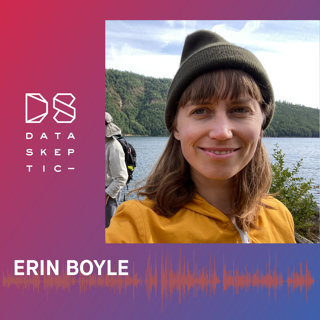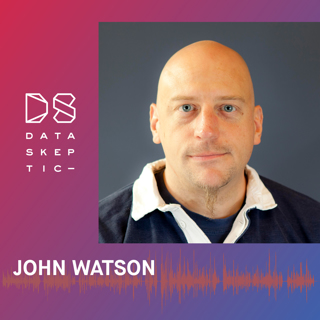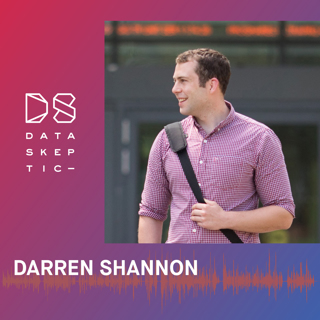
Energy Forecasting Pipelines
Erin Boyle, the Head of Data Science at Myst AI, joins us today to talk about her work with Myst AI, a time series forecasting platform and service with the objective for positively impacting sustainability. https://docs.myst.ai/docs Visit Weights and Biases at wandb.me/dataskeptic Find Better Data Faster with Nomad Data. Visit nomad-data.com
24 Jan 202243min

Matrix Profiles in Stumpy
Sean Law, Principle Data Scientist, R&D at a Fortune 500 Company, comes on to talk about his creation of the STUMPY Python Library. Sponsored by Hello Fresh and mParticle: Go to Hellofresh.com/dataskeptic16 for up to 16 free meals AND 3 free gifts! Visit mparticle.com to learn how teams at Postmates, NBCUniversal, Spotify, and Airbnb use mParticle's customer data infrastructure to accelerate their customer data strategies.
17 Jan 202239min

The Great Australian Prediction Project
Data scientists and psychics have at least one major thing in common. Both professions attempt to predict the future. In the case of a data scientist, this is done using algorithms, data, and often comes with some measure of quality such as a confidence interval or estimated accuracy. In contrast, psychics rely on their intuition or an appeal to the supernatural as the source for their predictions. Still, in the interest of empirical evidence, the quality of predictions made by psychics can be put to the test. The Great Australian Psychic Prediction Project seeks to do exactly that. It's the longest known project tracking annual predictions made by psychics, and the accuracy of those predictions in hindsight. Richard Saunders, host of The Skeptic Zone Podcast, joins us to share the results of this decadal study. Read the full report: https://www.skeptics.com.au/2021/12/09/psychic-project-full-results-released/ And follow the Skeptics Zone: https://www.skepticzone.tv/
14 Jan 202225min

Water Demand Forecasting
Georgia Papacharalampous, Researcher at the National Technical University of Athens, joins us today to talk about her work "Probabilistic water demand forecasting using quantile regression algorithms." Visit Springboard and use promo code DATASKEPTIC to receive a $750 discount
10 Jan 202226min

Open Telemetry
John Watson, Principal Software Engineer at Splunk, joins us today to talk about Splunk and OpenTelemetry.
3 Jan 202236min

Fashion Predictions
Yusan Lin, a Research Scientist at Visa Research, comes on today to talk about her work "Predicting Next-Season Designs on High Fashion Runway."
27 Dec 202134min

Time Series Mini Episodes
Time series topics on Data Skeptic predate our current season. This holiday special collects three popular mini-episodes from the archive that discuss time series topics with a few new comments from Kyle.
25 Dec 202136min

Forecasting Motor Vehicle Collision
Dr. Darren Shannon, a Lecturer in Quantitative Finance in the Department of Accounting and Finance, University of Limerick, joins us today to talk about his work "Extending the Heston Model to Forecast Motor Vehicle Collision Rates."
20 Dec 202139min




















